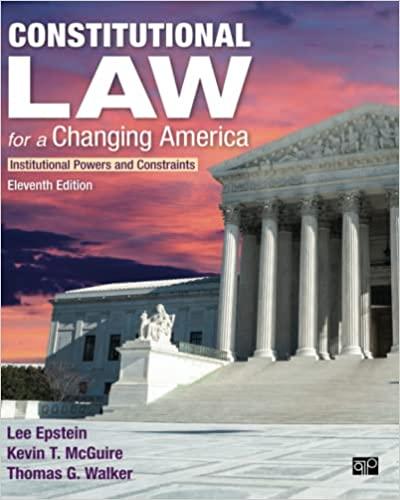Question
Question 5 Samantha signs a contract to buy a brand-new unit in Kogarah. The contract is subject to an extended settlement period of 120 days.
Question 5
Samantha signs a contract to buy a brand-new unit in Kogarah. The contract is subject to
an extended settlement period of 120 days. Samantha, through her solicitor, transfers the 10% deposit to the vendor's solicitor and then speaks with her mortgage broker about obtaining a loan.
While all this is going on, Samantha sells her own unit in Oatley. She intends to use the
money realised from the sale of the Oatley unit to pay the balance of the purchase price
of the Kogarah unit.
A problem arises when Samantha's unit does not sell by the expected date. Samantha needed to secure short-term finance at an almost exorbitant interest rate just so she can buy the Kogarah unit. Samantha consults her solicitor, who advises her that she can sue the buyer of her Oatley unit for breach of contract and ask for damages including the additional interest charges she incurred. Is Samantha's solicitor correct? Explain your answer.
ANSWER:
Question 6
Octagon Supplements is a company registered in Australia. It is a seller of organic health and nutrition supplements. The company's directors approve a resolution to invest the company's money in a new business venture. This resolution was approved only after the company hired a management consultant, someone who possessed expert knowledge of the health and nutrition supplement industry who researched and prepared a report on the viability of the new business venture. The expert advised the company that the new business venture would very likely be successful and make the company $5 million in the first year.
Eight months after the company has made this investment, the company has lost money on it. The expert's revenue projections now look impossible. And in hindsight, it is now clear to the directors that investing in the new business venture was a bad idea. The shareholders now blame the directors for their decision. Have the directors violated any of their DUTIES under Corporations Act 2001 (Cth)? If so, which DUTY or DUTIES did they violate? Is there any DEFENCE available to the directors? If so, is this DEFENCE valid? Explain your answer citing specific sections of the Corporations Act.
Step by Step Solution
There are 3 Steps involved in it
Step: 1

Get Instant Access to Expert-Tailored Solutions
See step-by-step solutions with expert insights and AI powered tools for academic success
Step: 2

Step: 3

Ace Your Homework with AI
Get the answers you need in no time with our AI-driven, step-by-step assistance
Get Started


